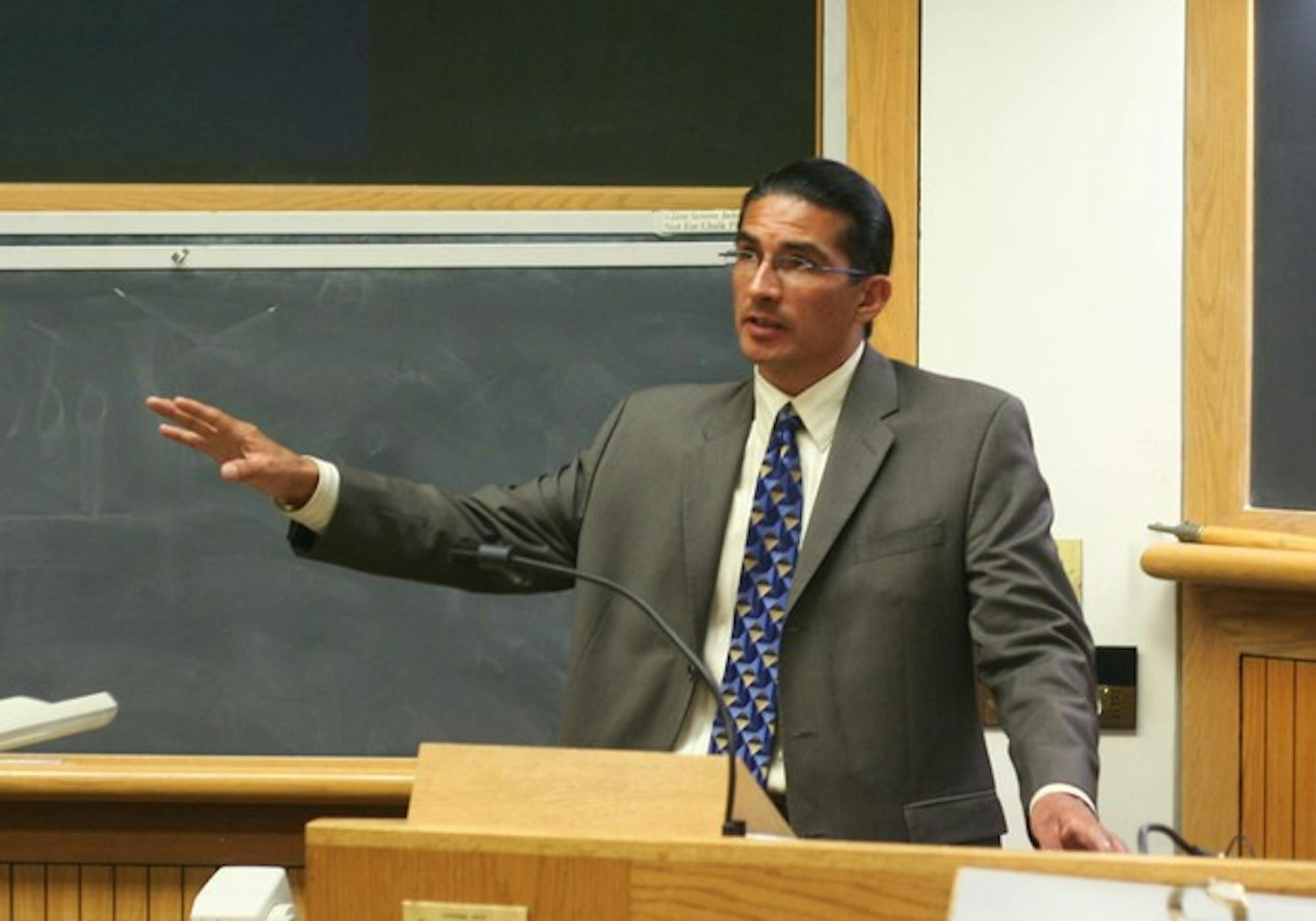In his lecture, "Tribal-State Political Relations in the Era of Tribal Self-Determination," held at the Rockefeller Center on Monday, Warren said Native American tribes have improved relationships with state and federal governments in recent decades. Warren was appointed New Mexico's Cabinet Secretary of Indian Affairs this past January.
"There has been a quiet revolution in the past 30 years," Warren said. "In the past, the 50 states and the 562 tribal nations had been adversaries, but they now build models for cooperation and communication."
Native American political participation increased after the federal government began providing block grants to fund state projects in the 1980s and Native Americans needed to advocate for some of the funds, Warren said, adding that the legalization of casinos on tribal lands also increased political participation. A key moment in collaboration occurred in 1989 when Washington recognized the sovereignty of its 26 Native American tribes, he said.
In New Mexico, tribal involvement in government has flourished under Gov. Bill Richardson, D-N.M., Warren said. Richardson created Warren's cabinet-level position, which helps to ensure that tribal issues play a leading role in state government. It is the first position of its kind, he said.
"The interaction we have seen between governments is not just a fluke, it is a fruition of our federalist system, which had in mind not two but three bodies -- the federal government, the state government and tribal governments," Warren said.
Because 47 percent of Native Americans in New Mexico do not have health care, and there are high death rates in the Native American community, Warren has worked to improve health and human services for tribe members, he said. Warren has made it a priority to promote behavioral health by decreasing substance abuse among the Native American community, he said.
"In my role as coordinator, my duties are to investigate, study and act on any issue related to Native Americans in the state," Warren said. "Second, we are authorized to be involved in the setting of any state policy related to Indian tribes."
Since 2005, Warren has fought for $18 million to build infrastructure for Native American communities, many of which lack running water and electricity, he said. The new Tribal Infrastructure Fund will also pay for special projects, such as cultural preservation and tourism for Native American tribes.
All of these projects are in danger of being cut due to the current financial crisis, he said. Warren stressed the need for economic development, using the financial stimulus package proposed by Richardson this summer as an example of effective policy. Originally, many Native Americans would not have received aid under the package because they do not pay income taxes if they live and work on a reservation. Warren successfully argued for their inclusion because the poverty rate is twice as high among Native Americans compared to New Mexicans.
"Because the United States recognizes American Indian nations as sovereign entities, the relationship between them is one of the most important issues we teach here at Dartmouth," Linda Welch, event organizer and administrator of the Native American Program, said.
The event provided an addendum to the third annual First Nations week, celebrated at the College last week in conjunction with the beginning of Native American Heritage Month. This speech and all of the week's activities were the result of a coordinated effort by the Native American Program, the Native American studies department and the student group Native Americans at Dartmouth. Events aimed to promote awareness about Native American issues and culture.
"The goal of First Nations week was to educate the Native American community and the greater Dartmouth community about issues that affect Indian countries and change stereotypes of Native American communities," Terra Branson '10, First Nations week organizer and co-president of NAD, said. "This year, First Nations week was very successful as we had more students and faculty members attending the events."
This year's events averaged ten more audience members per night than in previous years, Branson said. Dartmouth's celebration coincided with events at the National Museum of the American Indian and in several Native American communities.




